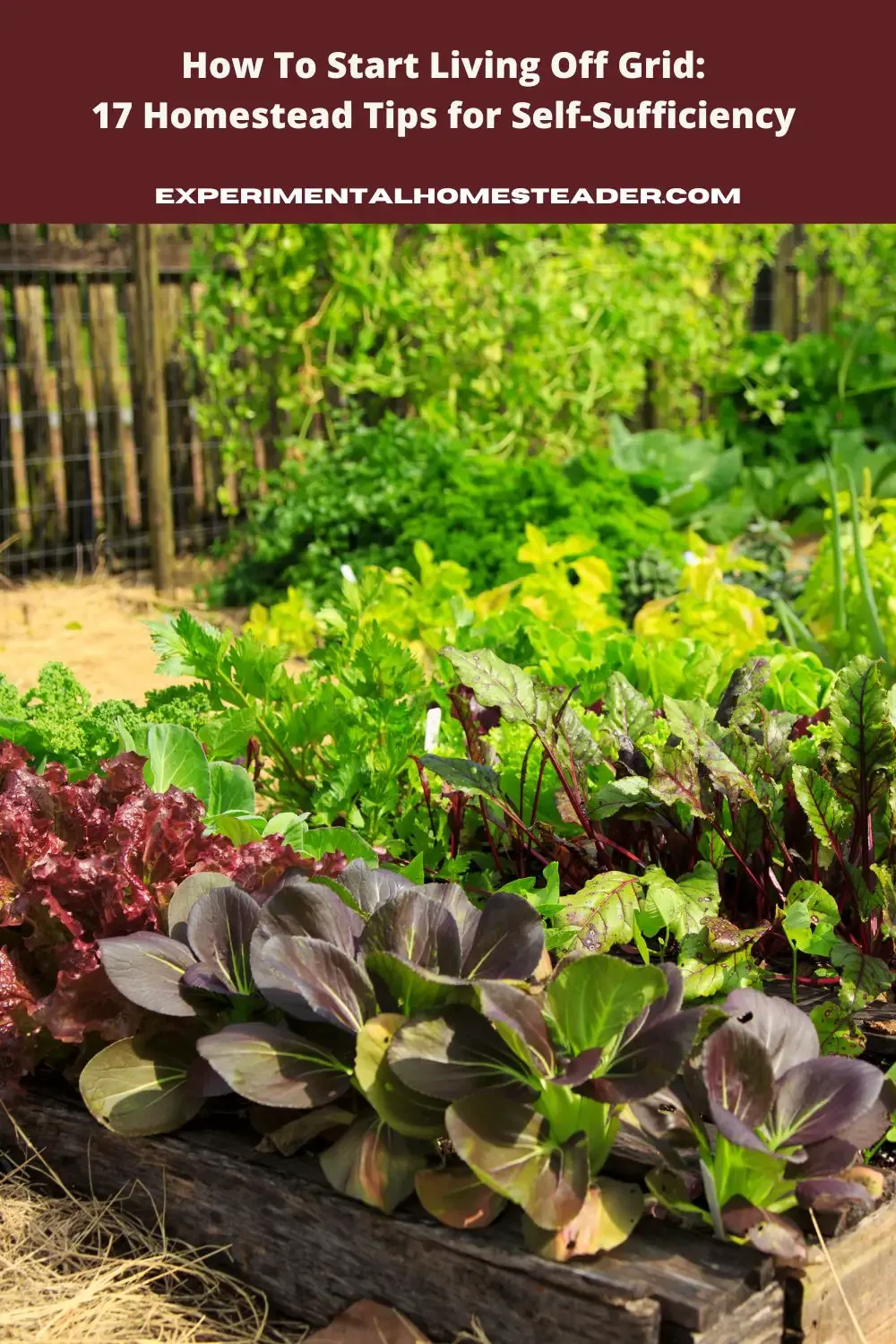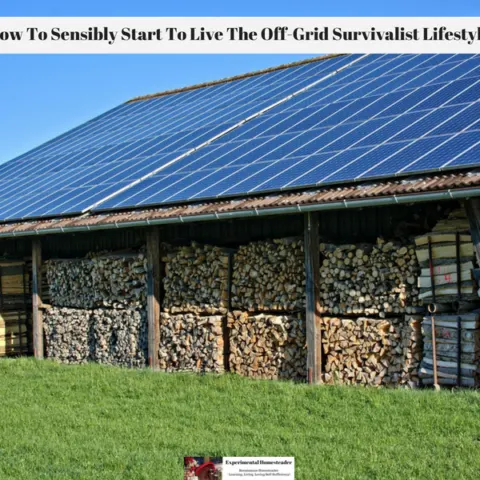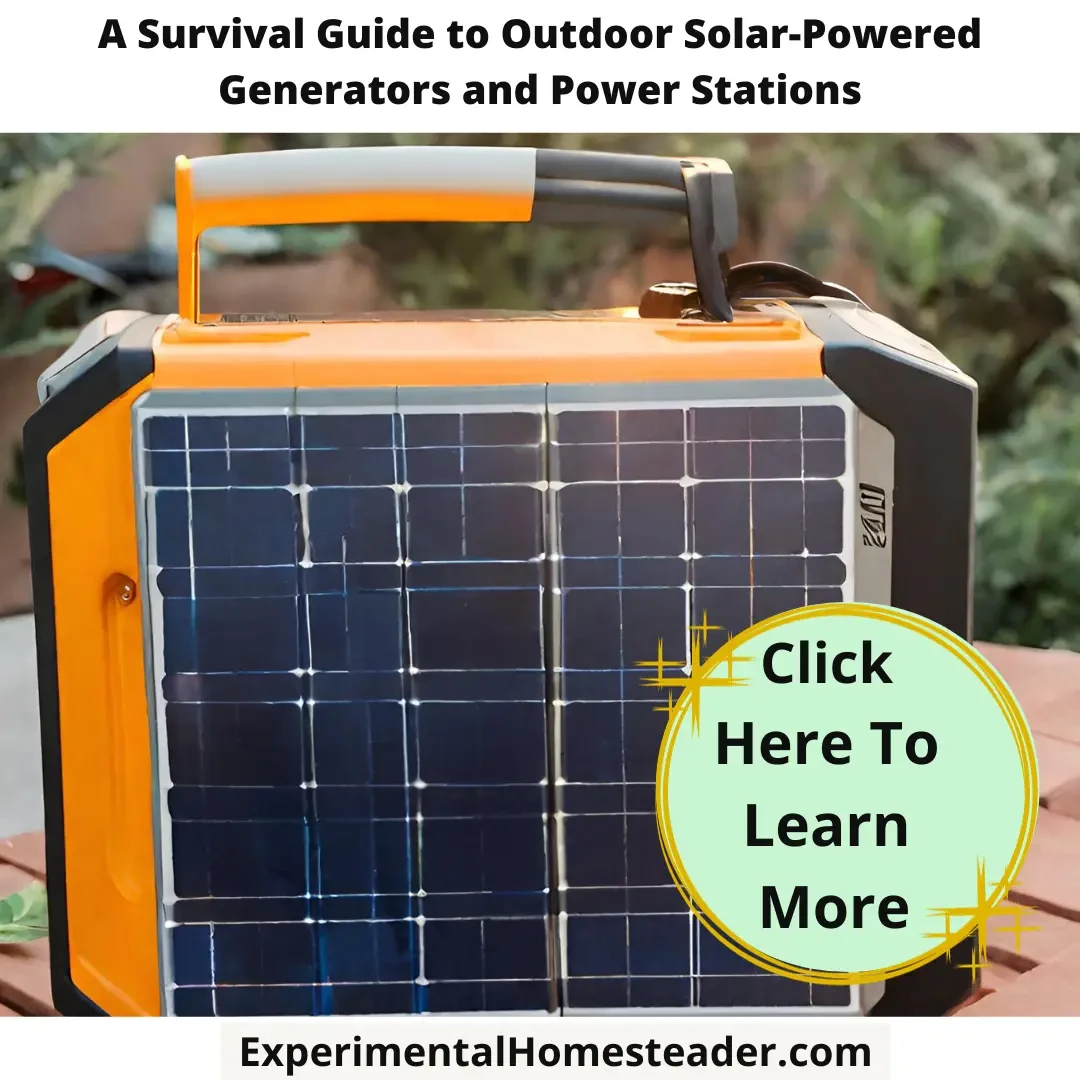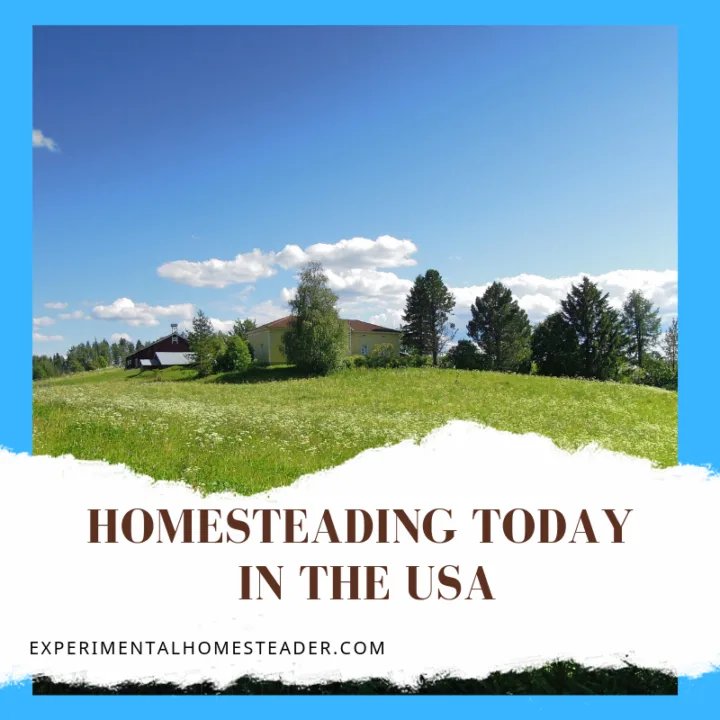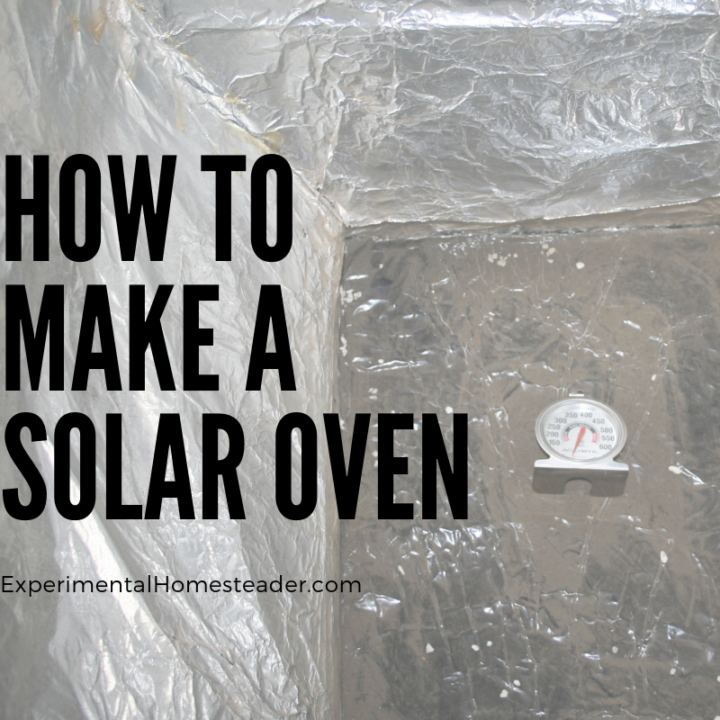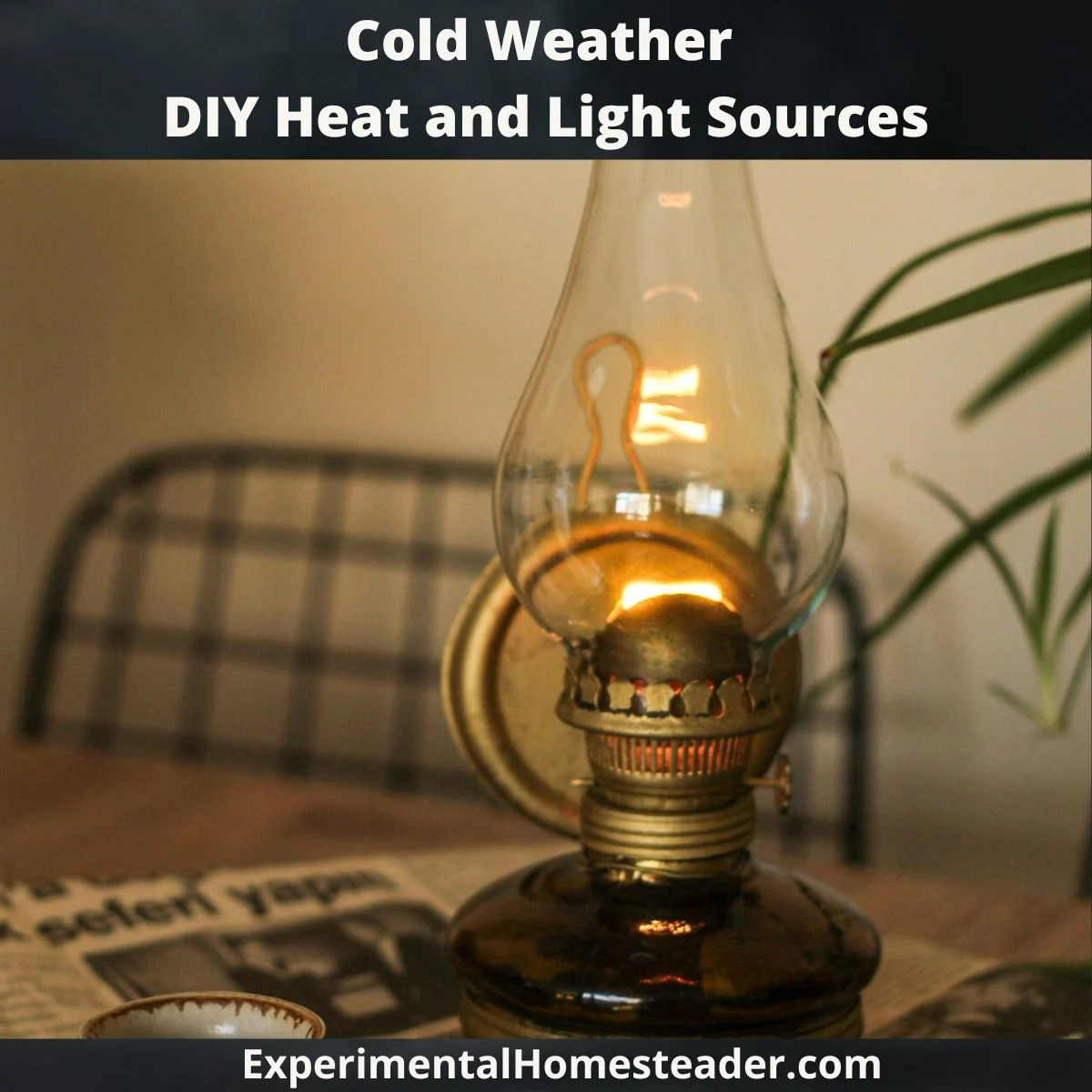Living off the grid represents a lifestyle where you rely on your own resources to fulfill your basic needs, such as food, water, shelter, warmth, and electricity.
It means disconnecting from the traditional power grid and embracing self-sufficiency.
Whether you're preparing for potential SHTF (Sh*t Hits The Fan) scenarios or simply seeking a more sustainable and independent way of life, transitioning to off-grid living requires careful planning and a commitment to a simpler, more natural existence.
In this comprehensive guide, we'll explore 17 essential homestead tips to help you learn how to start living off grid successfully.
Pick the Right Location for Off-Grid Living
Choosing the right location for off-grid living is crucial for ensuring sustainability.
Adequate land, typically around 2-3 acres, is necessary to support livestock and self-sufficiency.
Having a reliable water source and the potential for renewable energy sources like wind or solar power is essential.
Additionally, consider unforeseen factors such as access to medical care.
Once you've secured your location, building a suitable shelter, ideally with green, solar-optimized features, becomes the next step in your journey toward off-grid living.
Consider these factors:
- Adequate Land: Ensure you have enough land to support your self-sufficient lifestyle, including space for livestock if you plan to raise animals. While you don't need vast acreage, having at least 2-3 acres is advisable.
- Water Source: Ideally, your property should have its water source, such as a well, stream, or access to clean groundwater. This ensures a reliable water supply even during grid disruptions.
- Energy Sources: Evaluate the feasibility of alternative energy sources like solar panels and wind turbines based on your property's geographical location and climate.
- Proximity to Services: Consider your proximity to essential services, especially medical facilities, in case of emergencies.
Take Waste Removal Into Consideration
Managing waste becomes a critical aspect of off-grid living, where you must consider both household garbage and personal waste disposal.
Unlike life on the grid, where these concerns are often taken for granted, living off the grid demands proactive waste management due to the absence of city services.
There are various waste removal options available, with composting toilets and septic systems being popular choices among homesteaders.
Additionally, reducing household garbage through recycling, minimizing plastic usage, and composting kitchen scraps not only benefits the environment but also enriches your garden, serving as a valuable resource in times of grid disruptions when grocery store supplies become scarce.
Living off the grid means taking responsibility for waste removal:
- Composting Toilets: Consider using composting toilets to manage human waste efficiently. They're eco-friendly and don't rely on conventional plumbing.
- Septic System: Installing a septic system for waste disposal is another option. Ensure it complies with local regulations.
- Reduce Household Garbage: Embrace recycling, reduce plastic use, and compost kitchen scraps to minimize household garbage.
Don't Rely on One Power Source
Overreliance on a single power source can leave those living off the grid vulnerable in times of power grid failures.
While many homesteaders opt for sustainable energy solutions like solar power, it's important to recognize that even these sources have limitations.
Factors such as weather conditions can affect solar power generation.
To ensure uninterrupted energy supply and maintain self-sufficiency, it's crucial to have backup plans in place.
One effective alternative is a wind power system that complements solar energy production.
Off-grid living demands a comprehensive approach to power management, extending to heating solutions and other energy needs.
By diversifying energy sources and considering backup options such as solar cookers, generators, wind turbines, and natural irrigation, off-grid enthusiasts can secure their power supply without relying on external utilities.
Diversify your power sources to ensure energy independence:
- Solar Power: Solar panels are a popular choice for generating electricity. However, have backup plans in place as solar power can be weather-dependent.
- Wind Power: Wind turbines can complement solar energy and provide electricity on windy days.
- Wood Furnace: Consider a wood furnace for heating, which is efficient and sustainable. Calculate your power usage and have alternatives in place.
Consider Your Communication Methods
Living off the grid requires careful consideration of communication methods that do not rely on conventional infrastructure.
It's essential to assess factors like cost, durability, and performance to ensure seamless communication in any situation.
Options include having a satellite phone as an alternative to traditional cell phones, employing walkie-talkies for family communication across a vast homestead, utilizing ham radios, or even using CB radios for specific communication needs.
Additionally, having access to solar or hand-crank radios can keep you informed of critical survival news.
Maintaining communication off the grid is crucial:
- Satellite Phone: Invest in a satellite phone for reliable communication, especially if cell phone coverage is unreliable.
- Walkie-Talkies: Use walkie-talkies for intra-property communication among family members.
- Ham Radio and CB Radio: Learn to operate ham radios and CB radios for emergency and long-distance communication.
- Solar or Hand-Crank Radios: These radios allow you to access critical information during grid disruptions.
Have a Good Water Source
Independence from city utilities means securing a reliable water source.
This might entail digging a well on your property or sourcing water from natural features like streams or waterfalls.
To ensure water accessibility, consider power sources for pumps or alternative methods like sleeve buckets.
Collecting rainwater in barrels provides a sustainable water supply for various needs, from livestock and gardening to bathing and cooking, provided it is properly decontaminated and stored.
Ensure access to clean water sources:
- Well: If possible, dig a well on your property for a secure water supply. Use a hand pump or solar-powered pump for water retrieval.
- Rainwater Collection: Collect rainwater in barrels or containers for various purposes, including gardening and bathing.
- Water Decontamination: Implement water decontamination methods to make collected water safe for drinking and cooking.
Grow or Produce Your Own Fruits and Vegetables
Transitioning to off-grid living necessitates self-sufficiency in food production.
Growing or producing your own fruits and vegetables offers numerous advantages, including cost savings, improved food quality, and reduced reliance on grocery stores.
Embrace a diverse range of crops, from beans, potatoes, corn, carrots, and tomatoes to herbs like parsley, basil, thyme, and rosemary.
Learning food preservation techniques such as canning and drying ensures long-term pantry stocking.
Embrace self-sufficiency by growing your own food:
- Ditch Grocery Stores: Reduce reliance on grocery stores by producing your fruits, vegetables, and herbs.
- Natural and Healthy: Homegrown food is free from chemicals and GMOs, promoting a healthier lifestyle.
- Learn Preservation Techniques: Master food preservation techniques like canning and drying to stock your pantry.
Create a Plan for Winter Food Storage
Winter months pose challenges for growing food, making it crucial to have a well-thought-out plan for food storage.
Calculate the amount of food your family will require during these lean months, considering potential emergencies.
Stock up on meals that offer self-heating capabilities, such as MREs (meals ready to eat), and ensure you have the means to cook and warm stored foods, including wood, charcoal, or other heating methods.
Prepare for the winter months when gardening is limited:
- Food Stockpile: Estimate the amount of food needed for winter and stockpile accordingly.
- Self-Heating Meals: Have self-heating meals like MREs as emergency food options.
- Cooking Supplies: Ensure you have the means to cook and warm up stored food, such as wood, charcoal, or other cooking methods.
Have the Correct Resources for Food Prep
Preparing and storing food off the grid necessitates the right tools and resources.
Invest in fermentation equipment, large cast-iron pots for open-flame cooking, and items for freeze-drying or canning.
Mastery of natural food preservation methods without reliance on electronic gadgets is essential for long-term sustainability and safety.
Proper food preparation is essential:
- Fermentation Equipment: Acquire the necessary equipment for fermentation, a valuable food preservation method.
- Large Cooking Pots: Invest in large cast iron pots for cooking over open flames.
- Drying and Canning Tools: Learn how to dehydrate and can food naturally, and gather the required tools.
Discover Natural Plant Life
Living off the grid requires a deep understanding of the local plant life.
Identify edible plants and learn about their uses, including potential herbal remedies and nutritional benefits.
Seek resources like books, classes, or local guides to enhance your knowledge.
Cultivate these plants on your property discreetly to create a hidden survival garden.
Learn to identify edible plants around your property:
- Education: Study books, attend classes, or hire local guides to teach you about edible and medicinal plants.
- Survival Garden: Cultivate edible plants in a way that blends into the natural landscape to avoid drawing attention.
Raise Livestock
To ensure a consistent supply of meat and other animal products, consider raising livestock such as pigs, cows, chickens, goats, turkeys, ducks, sheep, or rabbits.
Proper care, ample space, and knowledge about livestock management are essential.
Raising animals on your homestead offers a sustainable source of protein and other valuable resources like milk and eggs.
Ensure a steady meat supply by raising livestock:
- Animal Choices: Consider raising cows, pigs, chickens, goats, turkeys, ducks, sheep, or rabbits based on your preferences and needs.
- Animal Care: Educate yourself on proper animal care to maintain their health and well-being.
Go Natural with Your Cleaning Supplies
Transitioning to off-grid living should include a shift towards natural cleaning supplies.
Utilize readily available resources like lemons, baking soda, vinegar, and lye for effective and eco-friendly cleaning.
These natural ingredients can clean various surfaces and even serve other purposes, such as brushing teeth.
Transition to natural cleaning supplies:
- Lemon: Utilize lemons for cleaning various surfaces due to their natural antibacterial properties.
- Baking Soda: Use baking soda for cleaning and freshening clothes, showers, and more.
- Vinegar: Incorporate vinegar into your cleaning routine for its effectiveness.
- Homemade Soaps: Learn to make natural soaps using ingredients like lye and lavender.
Put Money Aside in Savings
While off-grid living promotes self-sufficiency, it's essential to maintain savings for unforeseen expenses.
Budget for potential repairs, veterinary care for livestock, equipment replacement, and other unexpected costs that may arise.
Having reliable contacts for emergencies is crucial to ensure you're prepared for any financial challenges.
Financial preparation is essential:
- Emergency Fund: Set up an emergency fund to cover unexpected repair costs or emergencies.
- Multiple Contacts: Maintain contacts for essential services, including repairs and medical care.
Get and Stay Physically Fit
Off-grid living is physically demanding, requiring strength and stamina for daily chores.
Embrace regular physical fitness routines, including strength training and cardio exercises, before transitioning to off-grid life.
Physical fitness reduces the risk of injury and exhaustion during daily tasks.
Prepare for a more physically demanding lifestyle:
- Strength Training: Engage in strength training and cardio exercises to build endurance and prevent injuries.
Learn Before You Leap
Avoid costly mistakes by thoroughly researching and learning about new projects or skills necessary for off-grid living.
Whether it's building structures, caring for animals, or planting crops, invest time upfront to acquire knowledge and skills.
Prioritize durability and proper planning to prevent costly errors.
Gain knowledge before tackling new projects:
- Project Research: Research and understand any projects before starting them to avoid costly mistakes.
Knowing First Aid Is Imperative
Living off the grid often means being far from immediate medical care.
Acquire essential first aid knowledge, including treating injuries, splinting broken bones, and performing CPR.
Maintain well-stocked first aid supplies to address minor to major medical situations.
Ensure all family members are trained in first aid procedures.
Prioritize first aid knowledge and supplies:
- Basic First Aid: Learn essential first aid procedures, including CPR and injury treatment.
- Medical Supplies: Stockpile first aid supplies for minor injuries and medical emergencies.
Keep the Right Tools on Hand
Having a range of essential tools on hand is crucial for maintaining and managing your homestead.
These tools include axes, shovels, hammers, pliers, saws, hoes, wheelbarrows, post hole diggers, screwdrivers, wrenches, multipurpose knives, and items for fence repair.
Learn to use these tools safely and effectively to handle various tasks.
Maintain a well-rounded set of tools:
- Essential Tools: Own tools like axes, shovels, hammers, pliers, handsaws, and others for various tasks.
- Tool Maintenance: Keep tools in good condition with regular maintenance.
Join a Local Homestead Support Group
Building connections with a local homestead support group offers valuable resources, knowledge sharing, and the potential for resource exchange.
You can seek guidance, collaborate on projects, and even trade surplus supplies with fellow homesteaders.
Forming a supportive community enhances your self-sufficiency and resilience in off-grid living.
Connect with like-minded individuals:
- Knowledge Sharing: Join or form a support group for knowledge exchange and resource sharing.
- Community Building: Consider forming a homestead community for safety and collaborative efforts.
FAQs on Off-Grid Living
Q: What are the best places to live off-grid?
A: The best places for off-grid living vary based on personal preferences, but states like Alaska, Montana, Idaho, and parts of the Southwest U.S. offer vast, remote areas conducive to off-grid lifestyles.
Q: What is off-grid prepping?
A: Off-grid prepping involves preparing for self-sufficiency in the event of grid failures or emergencies, including stockpiling food, water, medical supplies, and learning essential survival skills.
Q: How can I start off-grid living on a budget?
A: Start by prioritizing essential needs like water, shelter, and food production. Gradually invest in alternative energy sources and expand your self-sufficiency over time to manage costs.
Q: What are some off-grid living ideas for urban areas?
A: Even in urban settings, you can adopt off-grid living by using solar panels, rainwater harvesting, container gardening, and reducing energy consumption.
Q: How can I ensure security when living off-grid?
A: Ensure security by forming strong bonds with neighbors or a nearby community, implementing security measures like alarms and fencing, and maintaining a low profile to avoid attracting unwanted attention.
Q: What legal considerations should I be aware of when living off the grid?
A: Be aware of local zoning and building codes, as well as property rights and land-use regulations. Consult with local authorities to ensure compliance.
Q: How can I maintain a social life while living off the grid?
A: Maintain a social life by joining local off-grid communities, participating in homesteading workshops, and using technology for communication with friends and family.
Q: How can I generate income while living off-grid?
A: Consider generating income through activities like selling excess produce, handmade crafts, or offering services within your skill set. Remote work and online businesses are also viable options.
Q: Is off-grid living sustainable in the long term?
A: Off-grid living can be sustainable in the long term with proper planning, resource management, and ongoing self-sufficiency practices.
Q: What are the main challenges of off-grid living?
A: Common challenges include securing reliable water and energy sources, dealing with waste management, and adapting to a more physically demanding lifestyle.
Living off the grid offers independence, resilience, and a closer connection to nature.
By following these 17 homestead tips and being prepared for various challenges, you can embark on a rewarding journey toward self-sufficiency and off-grid living.
Living Off Grid
How To Sensibly Start To Live The Off-Grid Survivalist Lifestyle
Learn how to sensibly start to live the off grid survivalist lifestyle you dream of and find out if it is the right choice for you before you make the move.
A Survival Guide to Outdoor Solar-Powered Generators and Power Stations
Discover the versatility of outdoor solar-powered generators. Stay connected and power essential appliances during outages with solar energy.
Homesteading Today In The USA
Although the Homestead Act of 1862 is no longer in effect, free land is still available for those wanting to try their hand at homesteading today.
How To Make A Solar Oven
Try these easy desserts for solar cooking. As you gain experience you can learn how to cook your favorite desserts in your solar cooker.
Cold Weather DIY Heat and Light Sources
Cold Weather DIY Heat and Light Sources: Stock up on Aladdin Lamps, kerosene, and batteries - DIY hacks only as a backup.



